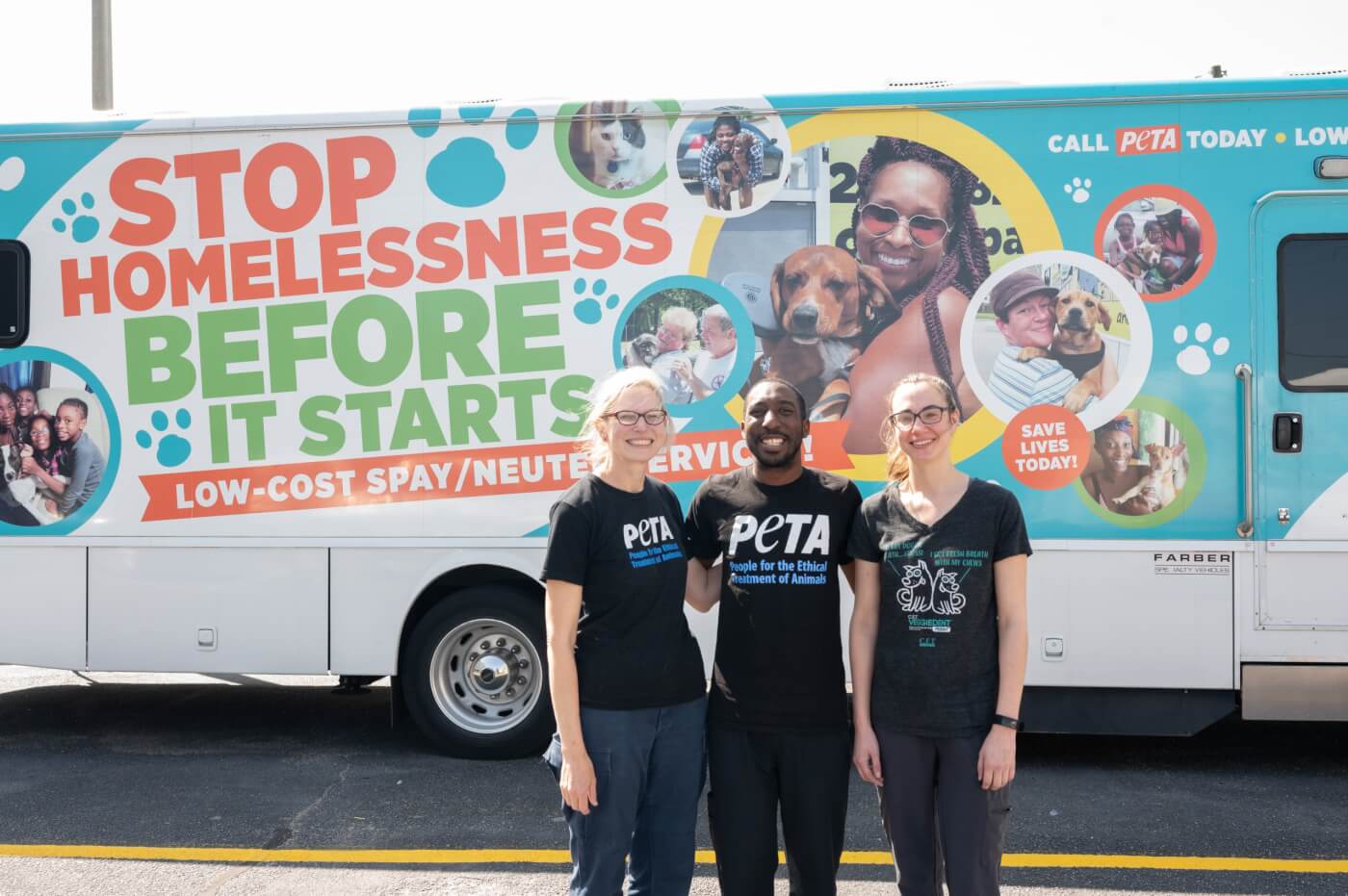Whether Critics Think PETA Is Good or Bad, We’ll Always Do Right by Animals
PETA is the largest animal rights organization in the world and has a reputation for never backing down. Millions of PETA supporters around the world know that we’ll always defend our fellow animals—even if some people don’t like it. After all, many individuals who derive profit or pleasure from animal exploitation feel threatened by our work, and since they can’t rightfully justify their own actions, they spread false and misleading information in a sad attempt to discredit our work and paint PETA as “bad.”

How Does PETA Expose the Bad Things Done to Animals?
PETA is an advocacy organization that informs the public through entirely peaceful means about the horrors of animal suffering. Unlike our opponents, we don’t commit acts of violence against anyone, regardless of species. We work to end cruelty to animals through investigative newsgathering and reporting, pamphlets, billboards, letters, advertisements, articles, peaceful demonstrations, litigation, humane education in schools, and provocative campaigns.
Our bold protests and advertisements make some people uncomfortable, but shocking them into action is infinitely better than the horrors inflicted on animals used in experiments or for food, fashion, or entertainment.
The Bad Things PETA Works to End
Right now, millions of mice, rats, rabbits, monkeys, cats, dogs, and other animals are locked inside desolate cages in laboratories across the U.S. After enduring a life of pain, frustration, and terror, almost all of them will be killed.
In the U.S. meat and dairy industries alone, 29 million cows will be violently slaughtered after horrific suffering this year. Approximately 9 billion chickens in the U.S. will be killed for their flesh and 305 million hens will be abused for their eggs.

Every year, billions of animals suffer and die for clothing and accessories and countless more languish in dismal conditions at roadside zoos, in traveling menageries, and at other seedy facilities.
For every beloved dog or cat who has a comfortable home and a devoted human guardian, countless others are struggling to survive at the end of a chain, in a tiny outdoor pen, or on the street. Many are enduring chronic deprivation at the hands of incompetent, overwhelmed, negligent, or abusive people or are waiting in animal shelters for a loving home.
What Good Does PETA Do? Let’s Find Out
PETA helps people go vegan.
We collaborate with members of Congress to replace the use of animals in laboratories, publish hard-hitting eyewitness exposés, develop and implement campaigns that have been pivotal in shifting public opinion against animal testing, and persuade major corporations, government agencies, and universities to abandon animal tests in favor of modern, effective, animal-free research methods.
We take a multifaceted approach to helping animals victimized by the pet trade, working behind the scenes with companies and law enforcement to make the world a better place for everyone every day.
PETA’s hard-hitting campaigns and eye-opening investigations reach tens of millions of people annually, revealing that dogs, cats, rabbits, birds, fish, and other companion animals need the help and support of compassionate and caring humans like you. Our ads, articles, and bold protests have opened people’s eyes to the horrors that animals endure at breeding facilities and in pet stores, roadside zoos, and squalid backyards—and the public can’t help but take notice.
PETA works to expose breeders, who churn out chronically unhealthy dogs and cats while millions of companion animals remain homeless. By mobilizing caring people, PETA helps communities get laws passed that fight animal homelessness at its root by prohibiting dog and cat sales in pet shops and requiring animal sterilization. Our fleet of mobile clinics has spayed or neutered more than 222,000 animals—including thousands of free-roaming outdoor cats and pit bulls—often at little or no cost to guardians.

These actions have helped prevent hundreds of thousands of animals from being born into a world already bursting at the seams with unwanted and homeless ones.
PETA’s campaign and hard work to end the cruel chaining of dogs have led community after community to restrict or ban the practice. And our compelling celebrity ads have informed millions of people about the homeless-animal overpopulation crisis and how we can work together to end it.
Animal abusers are terrified of the strides that PETA is making, and they’re trying every trick in the book to undermine our work. It’s a measure of our effectiveness that they feel so threatened by our victories and historic achievements, which only inspires us to work even harder. We’ll always vigorously defend animals and do everything we can to end speciesism—even if some naysayers wrongheadedly think we’re bad.

